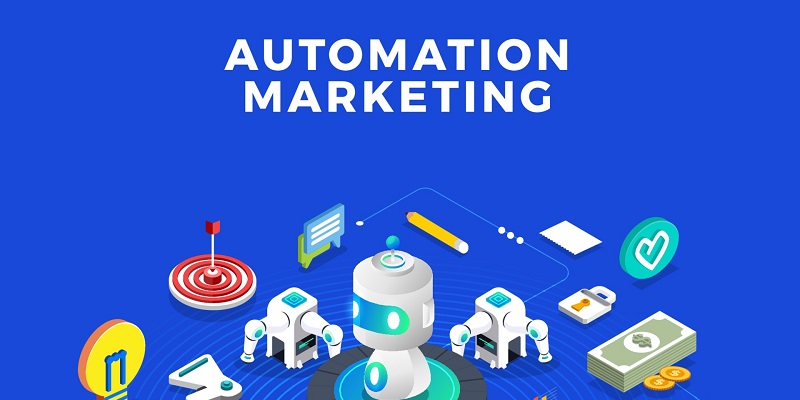In today’s fast-paced and information-saturated world, reaching the right audience at the right time has become more critical than ever. With consumers bombarded by a constant influx of information, businesses need to find innovative solutions to cut through the noise and effectively engage their target market. This is where marketing automation comes into play. By leveraging software platforms and technologies, businesses can automate repetitive marketing tasks and workflows to streamline their campaigns, ultimately driving efficiency and achieving better results. In this article, we will explore the concept of marketing automation, its benefits, key functions, its impact on audience engagement and conversion rates, the valuable insights it provides, and steps to successfully implement it.
Definition of Marketing Automation
Marketing automation refers to the use of software platforms and technologies to automate marketing tasks and workflows. These technologies include email marketing, social media management, customer relationship management (CRM) systems, and analytics tools. By automating these processes, businesses can save time, reduce human error, and create more personalized and timely interactions with their target audience.
Saving time and reducing human error
One of the primary advantages of marketing automation is its ability to eliminate manual workload, allowing the marketing team to focus on strategy and creativity. By automating repetitive tasks such as email campaigns, social media scheduling, and lead nurturing processes, businesses can allocate their time and resources more efficiently, increasing their overall productivity.
Creating personalized and timely interactions
Marketing automation enables businesses to deliver personalized content and messages to each prospect or customer, even when dealing with large numbers. By analyzing customer data, automation tools can segment audiences based on their interests, demographics, and behavior, allowing businesses to tailor their messaging to specific groups. This personalization helps establish stronger connections with the audience, leading to increased engagement and better response rates.
Fostering strategic thinking and creative ideation
With marketing automation taking care of repetitive tasks, marketers can shift their focus towards strategic thinking and creative ideation. This allows them to develop and implement more innovative and impactful marketing strategies that resonate with their target audience, fostering brand loyalty and driving growth.
Lead scoring, nurturing, and tracking
Marketing automation enables businesses to score and track leads, ensuring that they are properly cultivated until they are ready to make a purchase. By assigning scores based on predetermined criteria such as demographics, engagement level, and purchasing behavior, businesses can effectively prioritize leads and allocate resources accordingly. Nurturing campaigns can be automated to deliver targeted content and address specific pain points, nurturing relationships with potential customers until they are ready to convert.
Cultivating leads until purchase readiness
Effective lead nurturing is a crucial aspect of marketing automation. By leveraging automation tools, businesses can provide relevant and valuable content to prospects at different stages of the buying journey. This helps build trust, educate prospects, and ultimately increase the likelihood of conversion.
Delivery of personalized content and messages
Automation empowers businesses to create and send personalized content and messages to each prospect or customer at scale. By leveraging data collected through automation platforms, businesses can customize their marketing communications based on individual preferences, behaviors, and interests. This level of personalization ensures greater relevance, resonates with the audience, and ultimately increases engagement and conversion rates.
Sending the right message at the right time for effective engagement
Marketing automation enables businesses to interact with their audience at the most opportune moments. By analyzing data such as demographics, behavior, and purchase history, automation tools can identify the optimal timing for engaging with prospects. This ensures that the right message is delivered to the right person at the right time, increasing the likelihood of meaningful engagement and fostering positive brand experiences.
By automating and personalizing marketing efforts, businesses can significantly improve their conversion rates. Engaging the audience with relevant content and personalized offers increases their trust and confidence in the brand, making them more likely to convert into loyal customers. Moreover, automation enables businesses to track and analyze the effectiveness of different marketing campaigns, allowing them to refine their strategies and achieve better results.
Value of data in informing marketing strategy
Marketing automation provides valuable insights and analytics that can inform marketing strategies. By tracking customer behavior, engagement, and preferences, businesses gain a deep understanding of their target audience. This data-driven approach allows for more informed decision-making, improved targeting, and more effective campaign optimization. Analytics also enable businesses to measure the success of their marketing efforts, identify areas of improvement, and fine-tune their strategies for maximum impact.
Define objectives and desired outcomes
Before implementing marketing automation, it is crucial to define clear objectives and determine what you aim to achieve. This includes outlining your target audience, identifying the key metrics to measure success, and determining the specific tasks and workflows that need automation. Clarifying these objectives helps align the implementation with your overall marketing strategy and ensures that you make the most of automation tools.
In today’s digitally-driven world, marketing automation has become an indispensable tool for businesses striving to streamline their campaigns and achieve better results. With the ability to save time, reduce errors, create personalized interactions, and provide valuable insights, marketing automation empowers businesses to effectively engage their audience and foster meaningful relationships. By embracing automation technologies and strategically implementing them, businesses can drive efficiency, optimize their marketing efforts, and ultimately achieve greater success in an increasingly competitive landscape.

